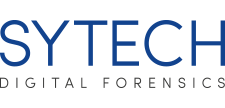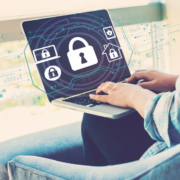Cyber Security for Remote Workers: Best Practices for a Secure Home Office
During COVID-19, many organisations moved from the office environment to working remotely. Nowadays, employees continue to work in a hybrid or fully remote role due to the many benefits. While most employees agree that working remotely provides flexibility, cyber threats and attacks are more likely to occur than working in a secure corporate office. Luckily, there are ways employees can continue to work remotely and reduce the risk of cyber threats. Continue reading as we explain the best practices for a secure home office.
1) Use Strong, Unique Passwords
Passwords are generally the first line of defence against cyber attacks. You may think your work laptop or computer is fully secure, but work devices can still get stolen and criminals can gain easy access. If your work devices don’t have passwords already, it’s crucial that you set them up. Use strong, unique passwords with a mix of lowercase letters, uppercase letters, numbers and special characters. Furthermore, aim for passwords with at least 12 characters for optimal security. For optimal security, manage your passwords and change them occasionally to reduce the likelihood of data breaches.
2) Use a Virtual Private Network (VPN)
Remote workers can work from anywhere once they have an internet connection such as cafes and co-working spaces. However, it is advised to avoid using public networks. Instead, work from home and use a virtual private network (VPN) to encrypt your online activity and data. This creates a secure connection between your work devices and your home internet connection. It can also allow employees to access company data outside the office. Using a VPN is vital for remote workers when accessing confidential work systems and sensitive information.
3) Install Antivirus Software and a Firewall
Antivirus software protects work devices from viruses, ransomware, spyware and other types of malware. It works by scanning your files, detecting any malicious threats, and removing them from your system. It also prevents hackers from infecting your device with malware software by scanning downloaded files. Without antivirus software, your work devices are vulnerable, meaning any hacker can attempt to steal your data.
Additionally, you should also have a firewall installed on your work devices. A firewall acts as a barrier to block unauthorised access from and to networks and systems.
4) Beware of Phishing Attacks
Research shows that phishing is the most common type of cyber breach or attack (84%) among reported businesses. Phishing is an attempt to steal sensitive information in the form of spam emails, links, pop-up ads, calls or text messages. Many remote workers receive spam emails impersonating their CEO or another senior member. If you receive these emails, do not give any details or click on any links. If the email address looks inaccurate or suspicious, it is most likely a spam email. If your organisation has a protocol for reporting phishing attacks, make sure to utilise it and raise awareness among other employees.
5) Don’t Use Personal Devices For Work
As a remote worker, it can be tempting to check your emails on your personal computer or mobile phone outside of working hours. As we mentioned earlier, remote workers are more likely to encounter cyber threats. While your work laptop may be secure, your personal computer may not be, making it easier for hackers to gain unauthorised access this way.
6) Look Into Penetration Testing
One of the best ways to prevent cyber attacks is through penetration testing. This gives both the organisation and its employees a deeper insight into their cybersecurity, highlighting which areas are vulnerable and need improvement. At SYTECH, our penetration testing service involves a simulated cyber attack. Our cyber specialists will use this to identify weaknesses within your system, draw up the findings in an in-depth report and provide you with effective solutions.
Contact Us For More Information
Maintaining cybersecurity is not only the organisation’s responsibility but also the employees’. By following these practices above, remote workers can increase cybersecurity and prevent data breaches or malware viruses within the organisation. For more information on penetration testing, please speak with our cyber specialists today by phone or email. We will be happy to discuss your cyber concerns with you.

